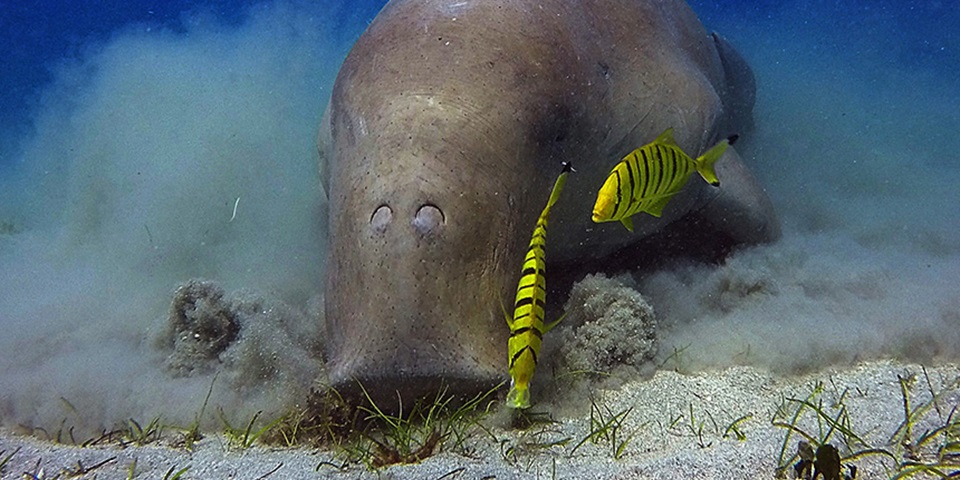News
Dugong researcher in running for prestigious Google prize

A Murdoch University marine scientist has been named one of 10 finalists in the Google Impact Challenge, for a project that will use drones, Artificial Intelligence and dugongs to monitor vital seagrass ecosystems.
Dr Amanda Hodgson and her team want to use dugongs – gentle marine mammals that range across 46 countries and feed exclusively on seagrass – as markers to map some of these vital underwater ecosystems, which support more than half the world’s fisheries and feed three billion people.
Seagrass meadows have been vanishing at a rate of seven per cent per year with an estimated 35 per cent already lost. In most countries where it can be found, little is known about the notoriously shy dugong, which is listed as vulnerable to extinction.
Four winning finalists will each receive $1 million to develop their projects. Three of the winners will be picked by judges and one will be selected by a public vote which opens on Tuesday 9 October and closes on 30 October. You can vote for Dr Hodgson’s project here.
Dugong Detector
Dr Hodgson said that surveying dugongs to find their important seagrass habitat has been expensive and dangerous for researchers because it has required experts to fly small planes in remote areas like the Pilbara coastline or in developing countries.
“I was motivated by some frightening experiences in small planes, including an engine breaking down mid flight, to try to develop a safer and more efficient way of studying dugongs,” Dr Hodgson said.
“I worked with my colleague Dr Frederic Maire at Queensland University of Technology to develop our Dugong Detector, which uses artificial intelligence to recognise dugongs in photographed images taken from user-friendly, camera-equipped drones.
“We’ve gained some great results already from our Dugong Detector. Using Google’s TensorFlow machine learning platform, the Detector identified 70 per cent of the dugongs that could be found manually in 37,000 images from the Australian coast, reducing our manual review hours by 95 per cent.”
Dr Hodgson said the funding from Google would help to advance this learning technology to improve detection rates and map different aspects of marine environments, including any visible seagrass.
“We’ll develop methods that can be applied worldwide by communities, including developing nations in East Africa, Asia and the South Pacific where dugongs can be found, and their data can be integrated to help monitor and protect essential seagrass habitats around the world,” she said.
“Currently there is no means of monitoring seagrass health across a large scale but dugongs are an excellent barometer of seagrass health. If the seagrass disappears, so do the dugongs.”
If selected as one of the Challenge winners, Dr Hodgson said the project will provide a ‘one stop shop’ online portal for researchers and citizen scientists in three years.
It could also be applied to different species in a range of different habitats, potentially initiating a new era in ecosystem monitoring.
Dr Hodgson's Murdoch colleagues Dr Chris Cleguer and Dr Julian Tyne are also working on the project.
News
Dugong researcher in running for prestigious Google prize
Posted on
Topics